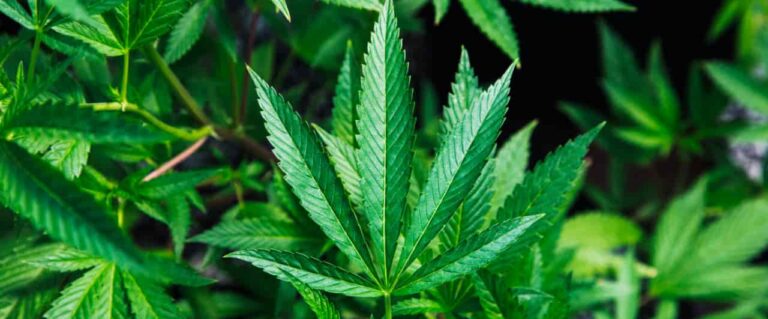Bakuchiol, also known as the natural alternative to retinol has multiple skin benefits and is able to reduce wrinkles, hyperpigmentation and more.
What is bakuchiol?
Bakuchiol is a natural cosmetic ingredient that has shown multiple antiageing benefits when applied to the skin.
Bakuchiol has multiple skin benefits due to its antioxidant properties and its capabilities to reduce wrinkles, redness and hyperpigmentation.
It’s the perfect ingredient for those people whose skin can’t handle retinoid products due to the irritation side effect.
What is the mechanism of action of bakuchiol?
Bakuchiol acts through different mechanisms1Chaudhuri RK, Bojanowski K. Bakuchiol: a retinol-like functional compound revealed by gene expression profiling and clinically proven to have anti-aging effects. Int J Cosmet Sci. 2014;36(3):221–230. doi:10.1111/ics.12117, we must first take into account that it behaves similarly to retinol.
As expected, it produces similar results: Reducing wrinkles, pigmentation, acne, photoaging and loss of firmness in the skin but without causing sensitivity and irritation as it may occurs in retinol.
All this is achieved due to the effects that it produces on the genetic expression profile, that is, how it acts on the cellular function of thousands of genes, so that it adjusts them together with the protein (such as collagen) in a similar way to retinol.
Bakuchiol skin benefits
All these claimed benefits come from a 2019 study2Dhaliwal S, Rybak I, Ellis SR, et al. Prospective, randomized, double-blind assessment of topical bakuchiol and retinol for facial photoageing. Br J Dermatol. 2019;180(2):289–296. doi:10.1111/bjd.16918 that used 0.5% of bakuchiol cream.
Bakuchiol is effective against acne
Bakuchiol can reduce the expression of 5-alpha reductase (an enzyme that increases sebum production in the skin and is involved in androgenic alopecia) up to an 40% when using cosmetics containing 10 mcg/ml (-1% bakuchiol content in the cosmetic) of bakuchiol.
Unlike retinoids, bakuchiol also has antibacterial and antifungal activity against popionibacterium acnes (one of the bacterias responsible for acne) or candida.
When it comes to its effectiveness, in a study3Chaudhuri, Ratan K., and Francois Marchio. Bakuchiol in the management of acne-affected skin. Cosmetics & Toiletries Magazine,vol.126,no.7,pp.502–510,2011. where 60 participants were divided into 4 groups of 15 people who applied some of the following formulations twice a day during 6 weeks, the results were:
- Placebo: 11% of acne improvement.
- 1% bakuchiol: 57% of acne improvement.
- 2% salicylic acid: 48% of acne improvement.
- 1% bakuchiol and 2% salicylic acid: 67% of acne improvement.
In conclusion, bakuchiol may be more effective than salicylic acid in the treatment of acne, while both combined are even more powerful.
It reduces wrinkles
Research shows that topical application of bakuchiol increase collagen and boos elastin production and this resulted in a up to 23.2% wrinkle decrease after 12 weeks.
On the other hand, bakuchiol has also shown to be an inhibitor of collagenase and elastase (some types of enzymes that degrade the extracellular matrix and collagen and elastin respectively), since just a 0.1% of bakuchiol can inhibit up to a 50% of collagenase.
It fades hyperpigmentation and reduces redness
Research has concluded that topical application of bakuchiol was able to decrease hyperpigmentation in up to a 59% of people who tried it resulting in a up to about a 15% of hyperpigmentation intensity decrease.
Furthermore, it is able to reduce redness.
It acts as an antioxidant
Bakuchiol has shown antioxidant capabilities4Haraguchi H, Inoue J, Tamura Y, Mizutani K. Antioxidative components of Psoralea corylifolia (Leguminosae). Phytother Res. 2002;16(6):539–544. doi:10.1002/ptr.972 acting as a radical scavenger being able of reducing mitochondrial lipid peroxidation effects.
Bakuchiol vs retinol
As you may know, actually retinoids are the gold standard in anti-ageing formulas due to their unique capacity to improve skin aging. But how is bakuchiol compared to them?
Based on a previosly mentioned study1Dhaliwal S, Rybak I, Ellis SR, et al. Prospective, randomized, double-blind assessment of topical bakuchiol and retinol for facial photoageing. Br J Dermatol. 2019;180(2):289–296. doi:10.1111/bjd.16918 that compared the efficacy of a 0.5% bakuchiol cream vs a 0.5% retinol cream during 12 weeks we can summarize that:
Efficacy:
- Both were able to decrease wrinkles, most significant changes were more noticeable in the week 12. Retinol maximum wrinkles improvement was 23.2% while bakuchiol was 19%.
- In the week 12, a 59% of bakuchiol participants and a 44% of retinol participants showed a decrease in hyperpigmentation. But those in the retinol group experienced better results (close to a 10% less pigmentation intensity than bakuchiol group).
- Talking about side effects, they were more present in people who used retinol (itching, scaling, burning, stinging) except in redness intensity and erythema that were more present in bakuchiol users.
In this comparison we can conclude that both have a similar effect in the treatment of pigmentation spots and wrinkles, with retinol being slightly more effective in both cases. While in the case of irritation it is higher in retinol although bakuchiol may increase facial redness more than retinol.
